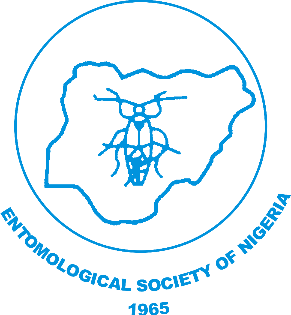
Response of the Leaf Roller, Eublemma olivacea Wlk to Applications of Weeding and Insecticidal Treatments on Eggplant, Solanum melongena L
NJE Vol. 37: 28-36, 2021
DOI.10.36108/NJE/1202/73.0130
Degri, M. M.,1 Buba, M.1 and Dunuwel, D. M.2
1Department of Agronomy, Faculty of Agriculture Federal University of Kashere, Gombe Sate, Nigeria
2Department of Crop Protection, Faculty of Agriculture Modibbo Adama University, Yola, Adamawa State, Nigeria
Abstract
Different strategies had been used for controlling the pest and stabilizing the productivity of the cropping systems. Weeding and insecticide application are some of the crop management practices that minimize the incidence and damage of insect pests in eggplant crops in order to enhance its growth and yield performance. Eggplant (Solanum melongena L.) is a popular and very important vegetable crop that is infested and damaged by arthropod pests in Nigeria. Field experiments were conducted to evaluate the of weeding frequency and conventional insecticide application in the control of leaf roller (Eublemma olivacea Wlk.) in eggplant. Five application concentrations of magic force (0.0, 0.5, 1.0, 1.5, and 2.0L/ha) and four weeding frequencies were assessed using split- plot laid out in randomized complete block design (RCBD) replicated three times. Results showed that three weedings and the application of insecticide at 1.5l/ha were found to be effective in reducing the population of E. olivacea and eggplant leaves damage. It further showed that these practices improved the number of eggplant fruits, fruit weight and fruit yield during the 2019 and 2020 cropping seasons in the study area combining three weedings with an appropriate insecticide (1.5l/ha) concentration rate is recommended for the control of eggplant leaf roller (E. olivacea) to poor resource farmers in the study area.
Keywords: Eggplant, Eublemma olivacea, Weeding, Magicforce, Concentration
